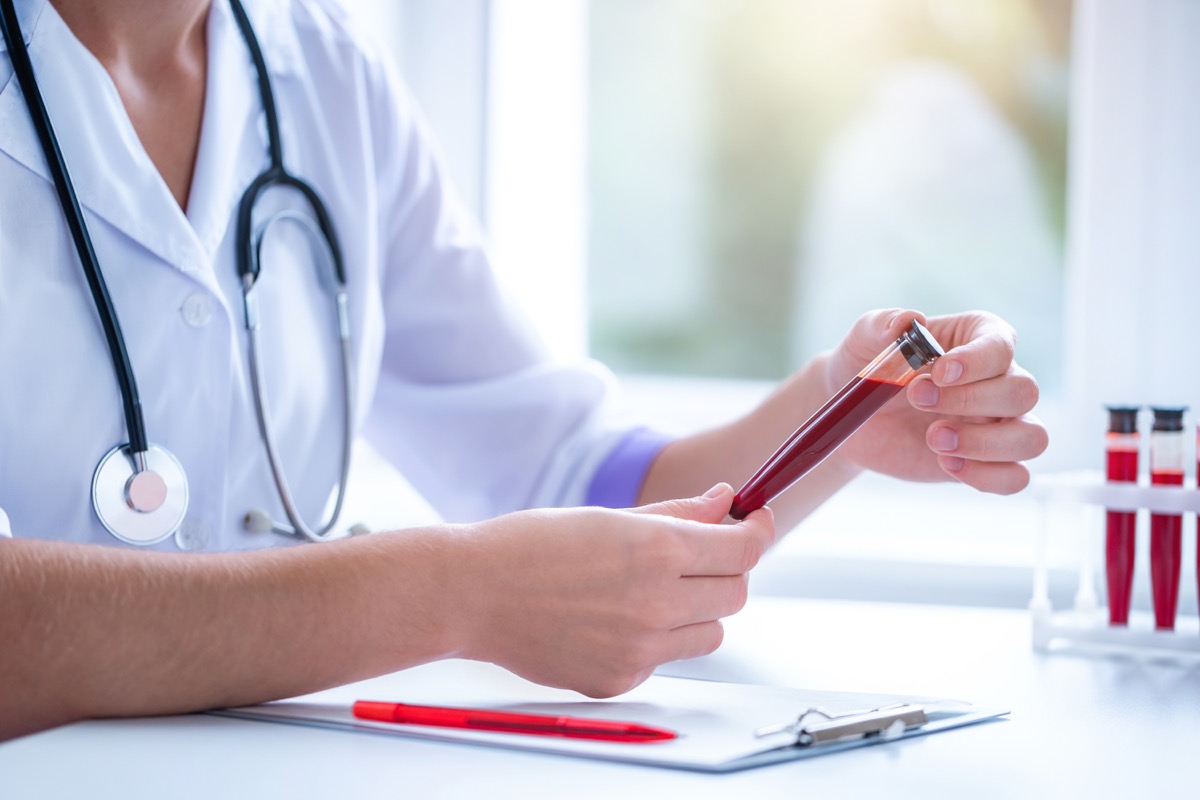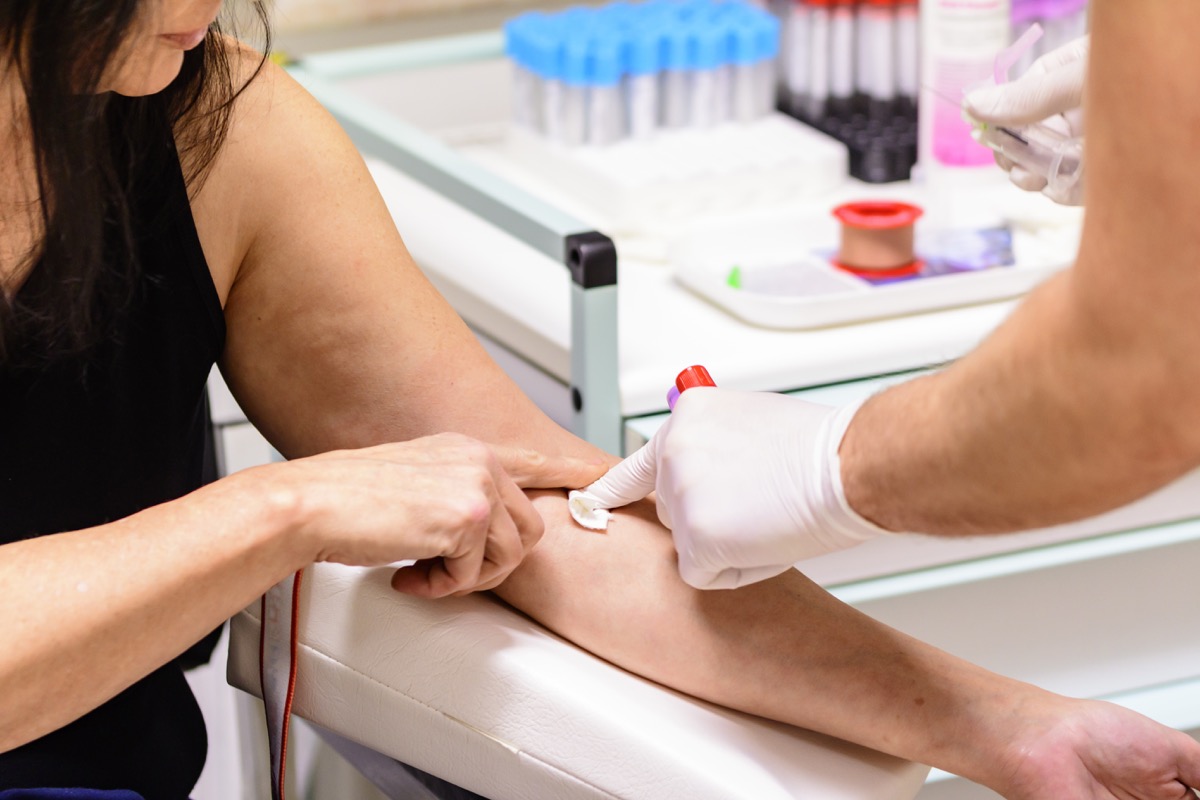Your Risk of Kidney Stones Increases if You Have This Blood Type
If you’ve ever had kidney stones, then you know that while they’re not lethal, they’re certainly no picnic. And even if you’re lucky enough never to have experienced them, you probably know someone who has. More than half a million people end up in the emergency room with kidney stones each year, according to the National Kidney Foundation, which also reports that one in ten people will have a kidney stone at some point in their lives.
Kidney stones are formed when minerals and salts turn into hard deposits, the Mayo Clinic explains. Painful but not life-threatening, they can be caused by taking certain medications and supplements. If you suffer from repeated urinary tract infections, you may be prone to developing kidney stones; a poor diet and chronic dehydration can also put you at heightened risk. But did you know that your blood type can also impact your chance of having kidney stones? A Swedish study published in April 2021 found that your blood type may make you more likely to get a kidney stone. Read on to find out whether your blood type makes you more vulnerable to kidney stones, and how to lessen your risk of this unpleasant condition.
READ THIS NEXT: If You Notice This on Your Skin, Get Your Kidneys Checked, Experts Warn.

Symptoms of kidney stones include sharp, severe pain below your ribs, in your side, and back, says the Mayo Clinic. The pain may come in waves, radiate toward your groin, and change in intensity. You may also experience burning when you urinate, nausea and vomiting, and in the event of an infection, fever and chills. Painful as they are, they usually don’t cause any permanent damage—and you may not even need medical assistance to pass them.
“Depending on your situation, you may need nothing more than to take pain medication and drink lots of water to pass a kidney stone,” the Mayo Clinic website explains. However, you should consult your healthcare provider if you have any kidney stone symptoms—and if the pain is severe, head to the emergency room.
READ THIS NEXT: Having This Blood Type Raises Your Pancreatic Cancer Risk by 70 Percent.

Our blood is categorized according to what type of antigens are present in it, according to Penn Medicine. You may have A, B, AB, or O type blood, as well as a positive or negative Rhesus, or Rh, factor. Like hair color and eye color, you can thank your parents for your blood type: it’s inherited genetically.
Recently, researchers have discovered that people with certain blood types are more prone to certain diseases and medical conditions. Your risk of heart disease and heart attack, memory loss, and certain cancers can all be impacted by your blood type, Penn Medicine says.

A Swedish study, which was published in eLife in April 2021, looked at health registry data on more than five million people and looked for links between blood types and more than a thousand different diseases. They found that people with type B blood were at lower risk of developing kidney stones—meaning that those with any other blood type may be at greater risk.
Kidney stones weren’t the only condition that researchers connected with blood type. “Our findings highlight new and interesting relationships between conditions such as kidney stones and pregnancy-induced hypertension and blood type or group,” explained physician Gustaf Edgren, the study’s senior author and Associate Professor of Epidemiology at Karolinska Institutet. “They lay the groundwork for future studies to identify the mechanisms behind disease development, or for investigating new ways to identify and treat individuals with certain conditions.”
For more health news sent directly to your inbox, sign up for our daily newsletter.

Even if you have type B blood, and therefore a potentially lower risk of developing kidney stones, making certain lifestyle choices can help you have even less chance of dealing with them. Drinking plenty of water is the number one way to avoid a kidney stone, says Healthline. Staying well-hydrated helps ensure you’re peeing frequently and that your urine will be less concentrated, and therefore more able to dilute the salts that can harden into stones. Eating calcium-rich foods and lowering your sodium intake also lowers your risk of kidney stones, their experts say.
If you’re worried about kidney stones, or don’t know your blood type and want to find out, consult your healthcare provider.
" Conservative News Daily does not always share or support the views and opinions expressed here; they are just those of the writer."





Now loading...